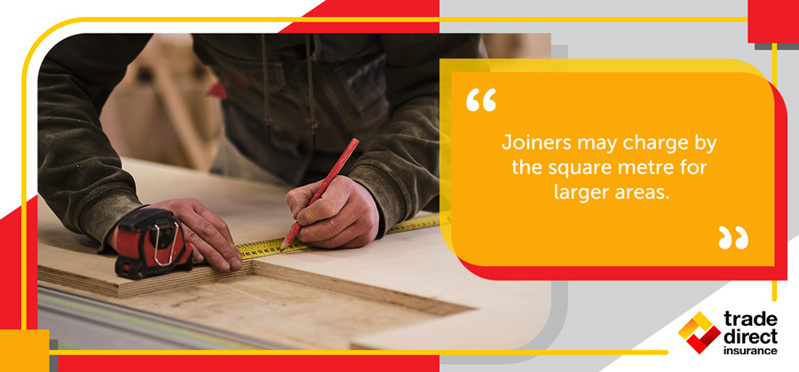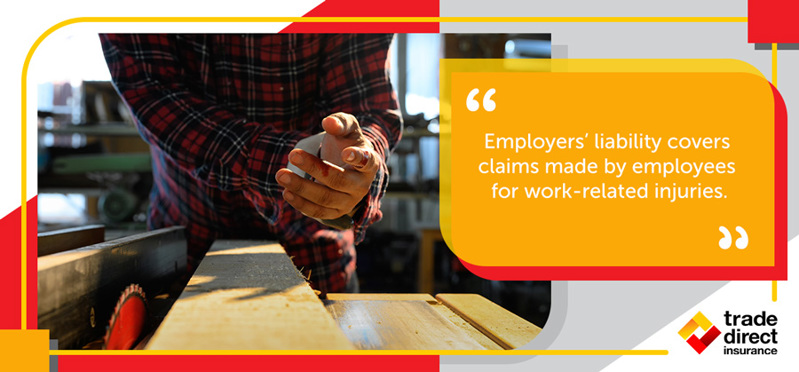
How much do joiners charge per hour?
30 August 2024Joiners are skilled professionals vital to the construction industry. Their work involves crafting and installing a range of wood-based products, from doors and windows to bespoke furniture and cabinetry.
If you're a homeowner planning a renovation, a self-employed joiner looking to price your services, or an SME looking to hire a joiner, understanding their hourly rates is crucial.
Understanding the difference between carpenters and joiners
Before we dive into hourly rates, it's important to distinguish between carpenters and joiners. While both work with wood, there are subtle yet distinct differences in their craft:
- Carpenters: Focus on the structural aspects of construction. They work with roof framing, stud walls, and building onsite structures.
- Joiners: Specialists in creating more intricate and refined wooden components. They typically work in workshops, crafting items like doors, windows, bespoke furniture, and cabinetry.
Joiners often work with pre-finished timber, whereas carpenters may work with rough sawn lumber. This distinction matters, as it slightly influences pricing. Joiners generally command a slightly higher hourly rate due to the detailed nature and precision of their work.

Factors affecting joiner hourly rates
Hourly rates for joiners are not fixed; they fluctuate based on several elements:
Location
Like with most trades, joiners in major cities like London charge more than those in smaller towns or rural areas. This is generally attributed to higher costs of living and operating expenses.
Experience and skills
A seasoned joiner with years of experience and specialised skills (e.g. cabinet making or period property restoration) will charge more than one just starting out. A master joiner with decades of experience commands a higher rate than an apprentice.
Complexity of the project
Large, detailed tasks require more time than small ones. Intricate joinery projects, like custom staircases or bespoke furniture, require more time and skill than installing standard kitchen cabinets. Therefore, a complex job will generally have a higher price tag.
Materials
If the joiner sources the wood and hardware, the material costs will factor into the final price.
The type and cost of materials influence the overall project price, particularly with custom pieces. Expect those costs to be factored into the final bill.
Business overheads
Like any business, joinery businesses must cover costs like insurance, tools, fuel, marketing, and administrative work. These expenses are reflected in their pricing.
VAT
Depending on their turnover, some joiners are required to charge VAT (currently 20%), impacting the final rate they charge clients. Be sure to clarify whether quoted prices include or exclude VAT.
Business structure
Self-employed joiners might have more flexibility with rates than a larger joinery firm with additional overheads.
Typical hourly rates for joiners
While there's no single definitive rate, here's a broad guideline with more specific examples for clarity:
- Apprentice or newly qualified joiner: £15 - £25 per hour
- Experienced joiner: £25 - £45 per hour
- Highly skilled specialist joiner (or master joiner): £45+ per hour
These are ballpark figures, and the factors mentioned above will cause rates to fluctuate. Company contractors may also charge slightly higher rates than fully self-employed joiners due to their business’s additional overheads.

Beyond hourly rates: additional pricing models
For some projects, joiners may offer alternative pricing structures to suit the project's scope and the client's needs:
Day rate
A fixed daily fee, often used for longer projects with a clear scope of work. Day rates can range from £180 to £300 per day. This can be particularly useful for larger or more complex projects with a clear timeline.
Project-based pricing
A set price for the entire job. This method helps with client budgeting but requires the joiner to accurately estimate time and materials to avoid losses.
This approach is helpful for well-defined projects where the scope is clearly understood by both the joiner and client before work commences (e.g., replacing a roof, building decking, or replacing a staircase).
Pricing per square metre
Joiners sometimes use this model, particularly for large surface areas like flooring, shelving, or wood panelling. Rates can range significantly depending on the complexity of the installation and the materials chosen.
The importance of joiner insurance
Insurance is a crucial expense for joiners. It safeguards both them and their clients against financial losses. Common coverages include:
Public Liability
Public Liability Insurance is designed to protect against claims if a client or member of the public is injured, or their property is damaged due to work carried out by the joiner.
Employers' Liability
A legal requirement for joiners with employees, Employers’ Liability Insurance covers claims made by employees for work-related injuries.
Tools Insurance
Tools Insurance is designed to protect valuable tools and equipment in case of loss, theft, or damage, minimising business disruption and the financial burden of obtaining replacements.

Tips for joiners trying to set competitive rates
- Factor in all costs: Ensure your rates cover your business expenses, materials, and a fair profit margin.
- Market research: Understanding the rates of comparable joiners in your area will help you remain competitive.
- Highlight your USPs: If you have specialised skills or experience, justify charging a premium.
- Invest in insurance: Protect your business and instil client confidence with the right insurance coverage. When factoring insurance costs into their quotes, joiners must strike a balance between competitive pricing and adequate coverage.
Finding the right insurance coverage for joiners
Business insurance is an important consideration as a reputable tradesman. You’ll want to make sure you’re paying a fair price and receiving good value for money. For joiners seeking to establish a successful business in the UK, securing appropriate insurance is paramount.
Trade Direct Insurance can help. For more than 40 years, we’ve specialised in providing cover for a range of tradespeople, including joiners. We understand the unique risks you face and offer flexible insurance for joiners, designed to suit all needs.
Our insurance is available in customisable packages that cover essential business liabilities, provide protection against claims from employees (where applicable), and offer other key forms of cover such as tools insurance.
Get a tailored insurance quote from Trade Direct Insurance today. Call 01483 521650 or email enquiries@tradedirectinsurance.co.uk to discuss your specific requirements.
Trade Direct is authorised and regulated by the Financial Conduct Authority. The company is a leading UK independent broker providing a wide range of policies to tradesmen and construction workers.
This note is not intended to give legal or financial advice, and, accordingly, it should not be relied upon for such or regarded as a comprehensive statement of the law and/or market practice in this area. In preparing this note we have relied on information sourced from third parties and we make no claims as to the completeness or accuracy of the information contained herein. You should not act upon information in this bulletin nor determine not to act, without first seeking specific legal and/or specialist advice. We and our officers, employees or agents shall not be responsible for any loss whatsoever arising from the recipient’s reliance upon any information we provide herein and exclude liability for the content to fullest extent permitted by law.
